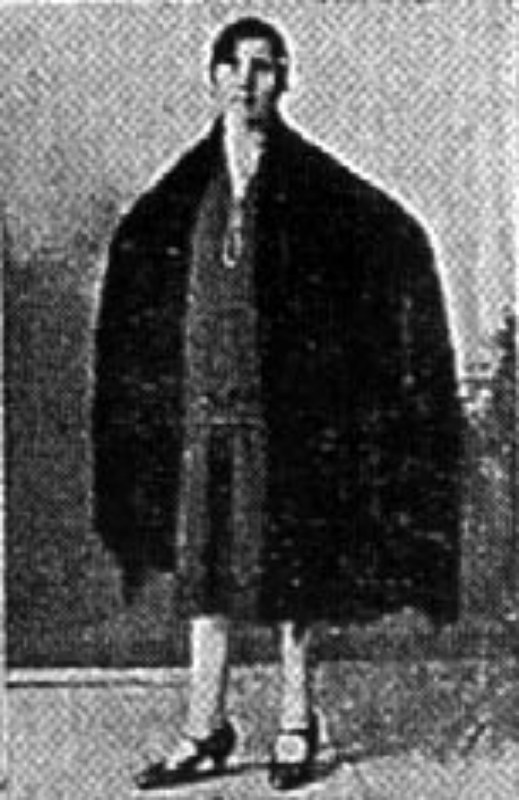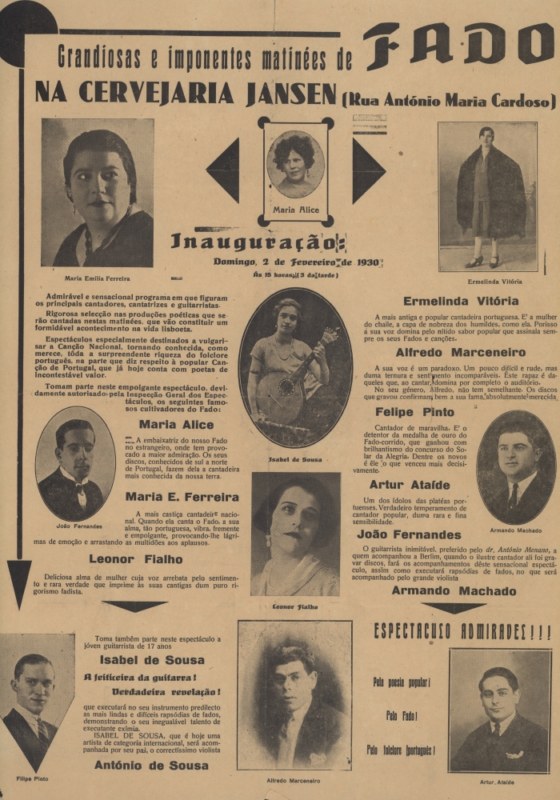Know more:
Ermelinda Vitória
(N. 24 January, 1892 - M. 1893)On October 26, 1929, João Linhares Barbosa wrote in “Guitarra de Portugal”: "Ermelinda Vitória was born of humble parents in 1892 in the old Lisbon’s quarter of Mouraria. Her father, know as Joaquim Enguia, was one of those travelling guitar players that bring the emotional notes of Fado to the popular festivities.
When Ermelinda was only 9 years old, her father encouraged her to sing in a market, in Setúbal. She was so good that the “Calafate”, the "Grande Cantador de Setúbal", dedicated her a fine improvisation that was indeed a prophecy. Ever since then Ermelinda engaged herself in the Fado crusade, and travelled all around the country to the most distant village to sing the fados written for the voices of the travelling singers. Take a good look at her: petite, hoop skirt, black hair, with her guitar, always singing the right song, either a corrido, a menor, or a choradinho.
And all of a sudden this suburban lark was wanted and welcomed!...” (“Guitarra de Portugal”, October 26, 1929)
Ermelinda sang at Retiros do “Bacalhau”, “Ferro de Engomar”, “José dos Pacatos”, “Perna de Pau”, “Fonte do Louro”, “Quinta da Montanha”, and in the traditional amateur bullfights. (Sucena, 1992:196)
Quoting João Linhares Barbosa: “Times have changed (...) and the singer left the suburban retiros (fado houses) and came to sing in the city’s Casinos and Theatres (Ginásio, São Luís, Maria Vitória, Trindade, Apolo, and Capitólio). The upper class (...) open their doors because she – always a step ahead of the other singers – has a particular feature: her hair is not short, she wears no hats, does not smoke at the Americanised clubs and, in opposition to "Maria da Graça", has no ashtrays at home".
Ermelinda also did private shows, as in the house of D. Roberto Burnay.
She sang in a celebration party for the Duque de Lafões at Clube Monumental with Maria do Carmo and Maria Emília Ferreira, and the guitar player Armando Freire “Armandinho”.
When she sings Ermelinda always wears her shawl. Her favourite poet Martinho D´Assunção was the only author who understood her emotional and simple dreams and wrote her dearest song "O Xaile" “(João Linhares Barbosa, in Guitarra de Portugal, October 26, 1929).
Ermelinda was honoured with a celebration party at Salão Jansen on October 28, 1930. (Sucena, 1992:197). Throughout her artistic career, she recorded several hits and appeared in radio broadcasts in Rádio Luso and Rádio Peninsular.
She died in Lisbon in the 1980s.
Source:
“Guitarra de Portugal”, October 26, 1929;
Machado, A. Victor (1937), “Ídolos do Fado”, Lisboa, Tipografia Gonçalves;

